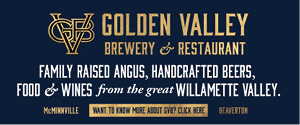In Memoriam: Bill Stoller
How an Oregonian turned a family turkey farm into one of the country’s most visionary wine estates
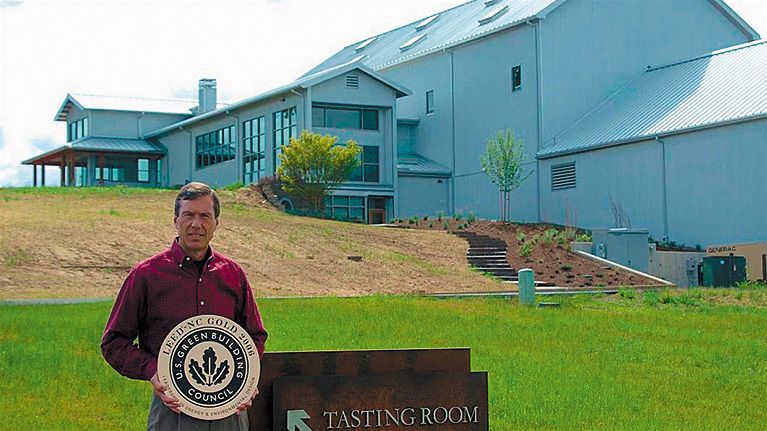
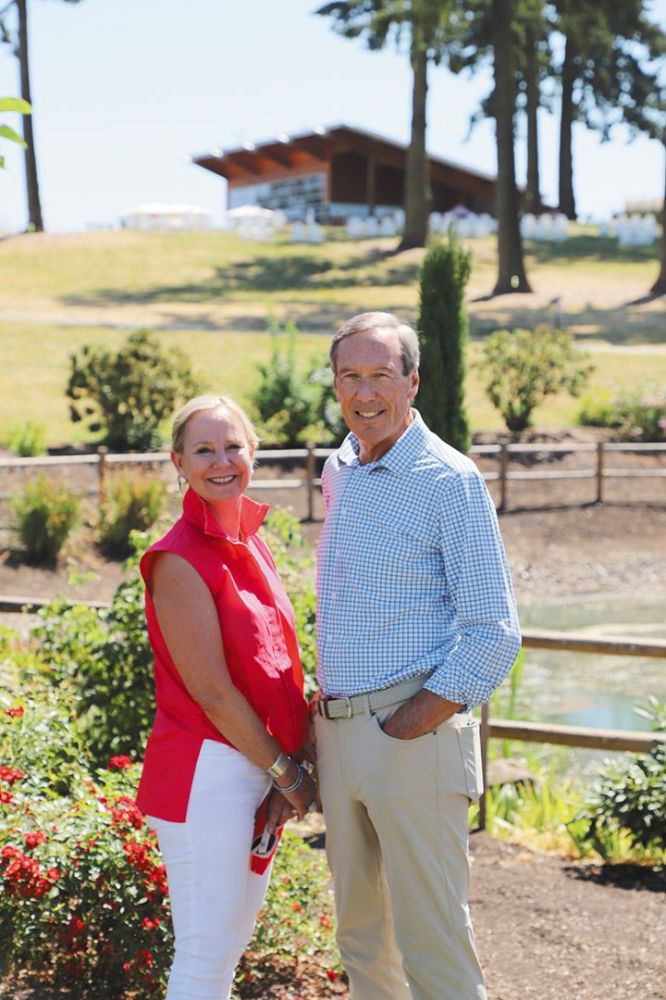
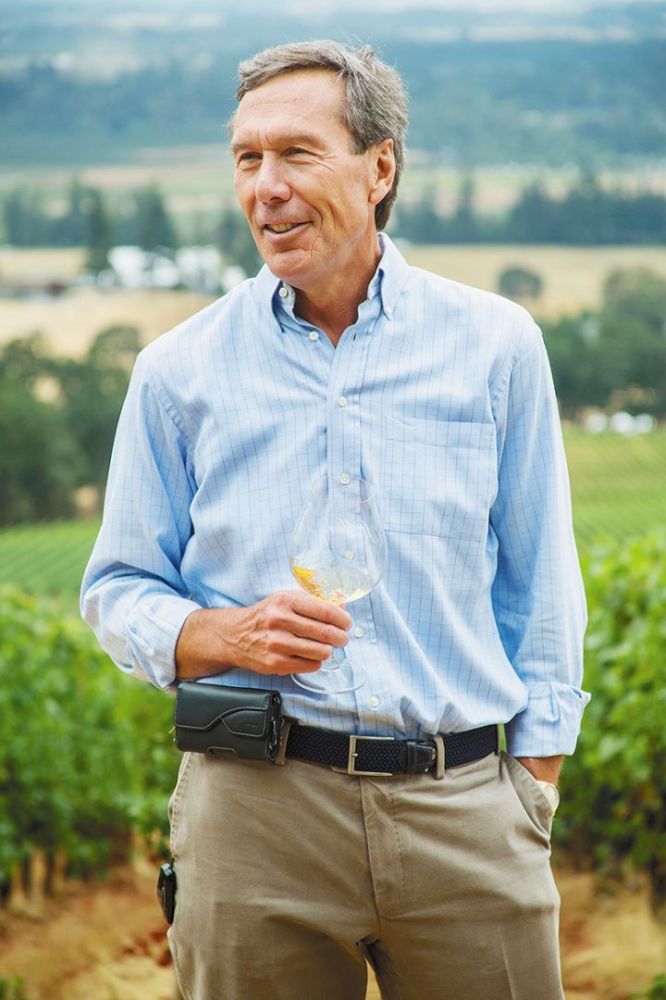
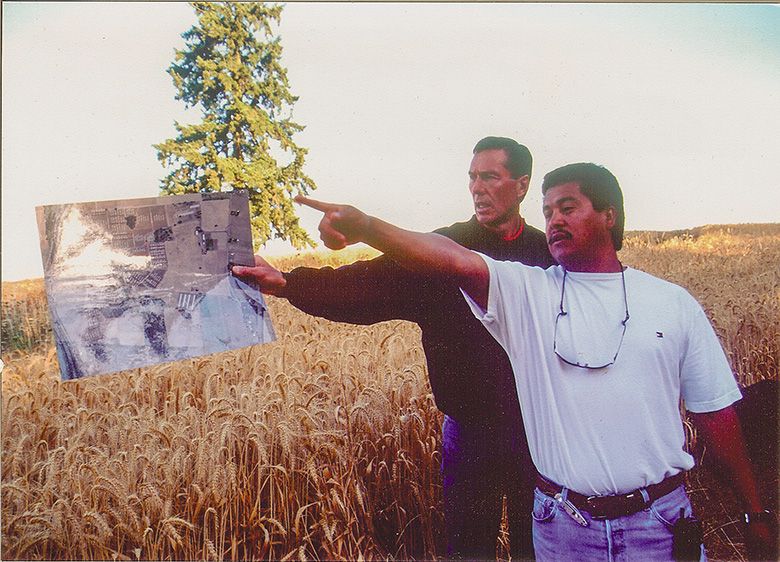
By Aakanksha Agarwal
Before there was wine, there were turkeys. Hundreds of thousands roamed a sloping stretch of land near Dayton. Here, Bill Stoller spent his childhood summers hauling feed, patching fences and learning the ways of farm life. The land, bought in 1943 by his father and uncle, eventually grew into one of Oregon’s largest turkey operations.
This rugged farmland would become one of the most ambitious, enterprising wine estates in the Pacific Northwest.
In 1993, the farm went up for sale. By then, Stoller had co-founded Express Employment Professionals now one of the largest privately held staffing firms in the country. Meanwhile, wine inhabited more of his imagination. He had attended wine classes at Portland Community College, traveled to Burgundy and started building a cellar.
Stoller’s first major step into the wine industry occurred in the late 1980s when he invested in Ridgecrest Vineyard. That experience, and the understanding he gained of soils and site selection, helped him recognize the potential of his own family’s property. In 1993, Stoller deepened his ties to wine by becoming a co-owner of Chehalem Winery. But he didn’t stop there.
“When his family’s property came onto the market, Bill saw an opportunity to turn his passion into reality,” recalled Gary Mortensen, president of Stoller Wine Group. “He believed the land, once home to over 700,000 turkeys, was destined to become a vineyard. He believed its south-facing slope, the ideal Jory volcanic soils, and the property’s diverse microclimates across its 400 acres made it unique. From the beginning, his vision was growing grapes that would elevate the state’s reputation.”
By purchasing the farm, not only did he reclaim his family’s history, but also established the groundwork for Oregon’s future. Stoller immersed himself in vineyard management and learned from global practices. He never stopped asking questions.
It’s tempting to read the story as one of reinvention. But, in truth, it stands as a continuation of the same values Stoller always held: hire good people, build long-term systems and think in centuries, not quarters.
“Throughout his business ventures, one core philosophy remained constant: success comes from investing in people and fostering a strong, supportive culture,” Mortensen said.
Wine– like staffing– entails vision, patience and trustworthy people. In 1995, Stoller began planting grapevines. He brought consultants from Burgundy to identify ideal planting sites and avoid mistakes that might take decades to undo. From the beginning, he balanced tradition with technology. He prioritized clonal diversity, paid close attention to slope orientation and considered every block with an extended view. After establishing Pinot Noir and Chardonnay as the estate’s foundation, he added small plantings of Pinot Blanc, Riesling, Tempranillo and Syrah.
“He believed the red fruit characteristics and earthiness impacted by the Dundee Hills’ Jory soil would help Pinot Noir truly shine, reinforcing his confidence that Oregon was capable of being a world-class wine region,” explained Mortensen.
“Bill always believed anything built or planted should serve future generations,” he added.
That ethos extended to the land itself. He preserved one of the largest private oak savannas in the Northwest and introduced bird-friendly systems, raptor perches, pollinator pathways and early regenerative practices. He became a solar energy advocate.
“Bill was also an early adopter of solar energy, integrating renewable power into the estate’s operations long before it was common practice,” Mortensen stated.
When building the reserve winery and heritage tasting room, he insisted it last 200 years. Stoller Family Estate became the first winery in the world to receive LEED Gold certification.
“When designing the reserve winery, Bill was introduced to the idea of LEED certification through the architect. It was something he hadn’t pursued before. Eager to learn, Bill embraced the process and all its standards,” recalled Mortensen. “For Bill, achieving LEED Gold certification wasn’t about checking a box; it aligned with values he had already put into place.”
Unlike many winery founders of the era, Stoller was Oregon-born and had worked this land as a teenager.
“For Bill, planting a vineyard on this land was more than a business decision. It was a deeply personal, full-circle connection,” Mortensen remembered. “Back then, few Oregon wineries were started by Oregonians, and none were on multi-generational land. That vision, rooted in legacy, focused on the future, guiding us today.” And it reaches beyond the vineyard.
“People talk about Bill’s impact in the wine world, but it can be found everywhere in Dayton, the town of his childhood,” explained Susan Sokol Blosser, founder of Sokol Blosser Winery and Yamhill Enrichment Society. “He helped fund school programs and restored the historic main street. He didn’t have to do that. He made a lot of money through his business acumen and spent some of it helping to resuscitate his hometown. He will be remembered for his generosity.”
By the 2010s, Stoller Wine Group had grown into one of the most respected operations in the Willamette Valley. And that, according to Mortensen, always came down to people.
“When hiring, we look for individuals who genuinely like people. Strong values, clear communication and a willingness to learn are more important to us than technical knowledge of wine. The soft skills come first— wine expertise can be taught,” Mortensen explained.
“Bill’s business philosophy was always centered on the people and culture you build. When you surround yourself with talented, value-driven people and create a culture rooted in trust, innovation and accountability, everything else will follow,” Mortensen noted. “Creating the right environment and empowering the team to carry these values forward is, in his view, half the battle.”
Founding winemaker Melissa Burr, who worked more than two decades alongside Stoller, remembers how deeply that trust shaped her, from the earliest years of their working relationship.
“In 2005, we had recently moved into the new estate winery, and Bill was away traveling for work during harvest,” Burr recalled. “I made a small lot of Pinot Noir rosé, only 100 cases. It wasn’t something we had planned, but I thought it would be great for the tasting room.”
During his next visit, Stoller noticed the rosé. “He asked, ‘What is this?’... I told him it was rosé, and he said, ‘I don’t even like rosé. We didn’t talk about making rosé.’” She braced for opposition. Rather than overruling her, he paused, nodded… and moved on.
That decision would become one of the most consequential in the winery’s portfolio. Today, Stoller annually produces nearly 20,000 cases of rosé.
“It’s one of my favorite ‘I told you so’ stories,” Burr confesses. “But it also showed just how much he trusted me. He gave me the space to grow as a winemaker. That shaped my confidence more than I can say.”
Burr continued, “Bill gave me so much creative license. That level of trust– being able to craft wines on a site that meant everything to him– shaped my entire winemaking philosophy. He had this rare combination of intuition and patience. He thought really far out, way beyond what most people could see and made decisions with this quiet dignity that was so uniquely Bill.”
Just as he had faith in her, Stoller believed in the larger community.
“Bill was deeply invested in the people behind the wine, especially those who weren’t always visible,” Burr remembered. “He supported programs like ¡Salud!, welcomed countless fundraisers at the estate and gave generously to local causes. But he never sought credit. He just quietly showed up, over and over again.”
The estate expanded, along with Stoller’s belief that great wine wasn’t exclusively for collectors or connoisseurs. In 2018, not only did he launch Chemistry and Canned Oregon, value-driven labels intended for a broader market, but also assumed full ownership of Chehalem Wines.
“Chemistry wines are made for the weekly wine drinker, rooted in the belief everyone should have access to high-quality Willamette Valley wines priced accessibly in the $14–$25 range,” stated Mortensen. “Meanwhile, Canned Oregon and Stoller Swing met a growing demand for alternative package formats, enabling Stoller Wine Group to strategically offer a broader suite of brands at a range of price points and styles.”
Last month, Stoller Wine Group acquired Elouan, a popular wine brand sold across the U.S., made with Oregon grapes. This acquisition increases Stoller's annual case production to 300,000 and substantially expands the distribution footprint across the country both on- and off-premise.
Though Stoller was never one to seek the spotlight, his contributions didn’t go unnoticed. In 2024, he received the Diploma of Honor from the Fédération Internationale des Confréries Bachiques. Earlier this year, the Oregon Wine Board honored him with a Lifetime Achievement Award.
During the ceremony, Stoller said: “Being a part of the Oregon wine story has been one of the greatest privileges of my life. Every time I pour a bottle of our wine, I share a piece of my home. I am grateful for the opportunity to help build our industry, making this honor all the more meaningful.”
That humble, deeply personal sentiment reflected the way he approached hospitality. “Bill was an entrepreneur and businessman at heart,” Mortensen recalled.
“He often pointed out the difference between business-to-business and business-to-consumer sales, and how the latter demands a deeper focus on relationships. At Stoller, our top priority is delivering exceptional hospitality at every level.”
He continued, “When you have great people, guests return and bring others with them. Because they know they’ll experience thoughtful service, outstanding wine and an unforgettable view.”
Stoller, who died in April, built something bigger than a winery. He built a model for sustainability, for inclusion, for what it means to grow with integrity.
“Bill always had a knack for seeing around the corner,” Mortensen reflected. “In our many conversations, growth was a constant theme, not just for Stoller Wine Group, but for the Oregon wine industry as a whole. He believed change is inevitable, and those who adapt will thrive. If we evolve together, we have the potential to become one of the great wine regions of the world.”
Ultimately, it wasn’t awards or acclaim that defined his story. It was the vineyard rows stretching across the soil he once shoveled as a boy, the families gathered on the lawn and the steadfast oak tree with the tire swing.
“It is a great honor to carry his vision and legacy forward,” Mortensen noted.
Aakanksha Agarwal is a wine, travel and lifestyle writer from India. Formerly a Bollywood stylist, she now resides in the U.S., embracing writing full-time while juggling family life and indulging in her passions for cuisine, literature and wanderlust.





